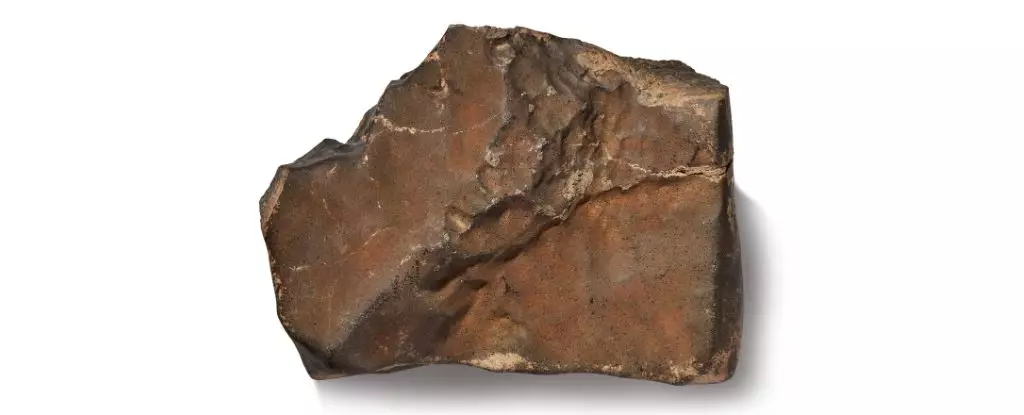The recent sale of a Martian meteorite for over five million dollars exemplifies society’s troubling tendency to commodify our universe’s most extraordinary natural treasures. While such transactions might seem like a celebration of scientific achievement, in reality, they reflect a troubling shift towards viewing cosmic phenomena through a purely monetary lens. When a piece of another planet is auctioned off to anonymous collectors, we risk reducing the awe and wonder of space exploration into a merely transactional act, stripping away the intrinsic value of scientific discovery and shared knowledge.
This commercialization raises profound ethical concerns. Martian meteorites are not just rare rocks; they are remnants of planetary histories, fragments of celestial bodies that tell stories billions of years in the making. Yet, by placing a price tag on such objects, we risk alienating the public from understanding their true significance. The scientific community has long debated whether these minerals should be exploited for profit or preserved for education and research. Turning them into commodities may generate short-term financial gains but undermines the collective human effort to understand our universe.
The Nature of Rarity and Its Market-Driven Illusions
The meteorite, known as NWA-16788, was sold at Sotheby’s for nearly double its estimated worth, illustrating how rarity and perceived scientific value are often manipulated within a market context. Its pristine condition, minimal terrestrial weathering, and unique geological features apparently propelled its astronomical price. But these qualities also expose how our perceptions of value are often skewed by scarcity and exclusivity, not necessarily by scientific importance.
In many ways, this reflects a broader societal obsession with owning the “rare” or “special”: limited edition sneakers, luxury watches, or even jewelry. The meteorite’s sale underscores a cultural shift where objects that are naturally valuable become spectacles for wealth accumulation rather than sources of knowledge. Such an outlook fosters inequality, as access to these objects becomes restricted to the highest bidders, effectively secluding scientific treasures away from the public that could learn from them and benefit from their insights.
Science or Showbiz? The Pitfalls of Turning Space into a Spectacle
The collection of Martian meteorites should be a matter of scientific curiosity, a quest to understand our universe better. Instead, it is increasingly becoming a spectacle driven by spectacle’s mechanics—bidding wars, celebrity sightings, and auction house hype. This movement away from science to showbiz creates a dangerous precedent: objects of immense scientific value are turned into trophies for the wealthy, further marginalizing those without means.
Prominent scientists have voiced concerns about this trend. Critics warn that when elite collectors control pieces of extraterrestrial materials, it hampers collective scientific progress. Valuable samples that could unlock mysteries about Mars’s geology, climate, or potential habitability risk being locked away—out of reach of researchers who could derive critical insights. Knowledge, once democratized, is now hoarded, and society suffers as a result.
The Public’s Diminished Connection with Space
Fundamentally, our fascination with space is rooted in curiosity, wonder, and the human drive to explore. When cosmic artifacts are sold for obscene sums, it diminishes their role as educational tools and symbols of collective achievement. Children and aspiring scientists are deprived of the chance to see and study these meteorites in museums or educational institutions, where they serve as tangible links to the cosmic realm.
Instead, they become symbols of wealth—the ultimate status symbol in the universe’s economy—further alienating the public from space exploration. If our shared heritage with the cosmos is encapsulated in expensive trophies for the ultra-rich, what message are we sending about our values?
The Need for a Shift: Valuing Knowledge Over Wealth
What we need isn’t just regulation or policy changes but a cultural awakening. We should recognize that the true worth of extraterrestrial materials lies in their capacity to expand our understanding, inspire curiosity, and foster collective progress. Instead of eternally chasing the next high-priced specimen, humanity should prioritize accessible, open scientific research that democratizes space knowledge.
Space exploration is not a game of wealth but a human endeavor rooted in discovery. We must challenge the notion that rarity and monetary value are the true measures of significance. Only then can we ensure that the extraterrestrial remnants of our universe serve us all—with shared knowledge, not exclusive ownership.


Leave a Reply